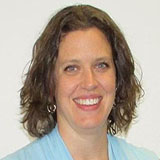Sustainable businesses earn their keep
Social license means leaving a place better than we found it
If the best reward for work well-done is the opportunity to do more, we need to earn those chances by gaining the respect of the communities where our operations are taking place. That means leaving a community better off than we found it—creating positive change with diversified economic development, employment, education for children and youth, and environmental well-being.
In the past, big companies have sometimes been seen to have a self-serving attitude. This has left a tragic legacy of mistrust. Gone are the days when a company’s project team could arrive in a community, set the terms under which they would operate, take what they need, and leave. Today, there’s an emphasis on the intangible and unquantifiable aspects of industry operations—honesty, integrity, and positive intentions. Delivering on these is often the hardest thing to do well.
Communities that are being asked to host projects are understandably reluctant. So we have to earn our way in and build trust. How? With partnership and sharing. Reconciliation. Compromise. Fairness.
Develop relationships early. There is sometimes an assumption that communities will oppose any development. This isn’t necessarily the case. Our vision is to be a trusted partner not only with our clients, but also with the communities in which our projects are located. Early engagement, if done correctly and respectfully, can benefit the development immensely and have a positive effect on sustainability goals. Have meaningful discussions with the people in the communities where projects are developing. And do it long—years, even—before shovels break the ground. Be sure that planning and partnership effort is clearly demonstrated in the construction and operation phases of the development, too.
Keep an open mind. Come with open ears. Be prepared to listen, not talk. Don’t be stubborn or unwavering. Leave engagement plans behind, along with the here’s-what-we’re-going-to-do-for-you attitude. Commit to transparency. Any plans for mitigation or accommodation must be about the community’s vision for itself, not ours for them. Start there, where they are, and bridge the gap of understanding.
Recognize that each community is unique. Each area or community has its own priorities…and understanding of its own potential. Building social license means taking their individual inputs seriously—hopes, dreams, and aspirations for the future—and tying those to benefits that the project can deliver. Let their ideas be the guide, and demonstrate how our plans can overlap with their goals. It can be mutually beneficial. As we take something, leave something of value behind, like social programs, training or employment opportunities.
Make connections with infrastructure. Development partners can be catalysts for long-term growth. It’s the physical things—the roads, buildings, transportation, and infrastructure—that can give a community a quantum leap in the direction it wants to go. But their culture, traditions, and values need to be respected and nurtured if we’re going to win the trust and confidence that make those developments happen in the first place.
Don’t underestimate the cost of conflict. Loss of social license and the ensuing cost of conflict have very real financial implications. But there can be more than capital at stake when our integrity is put on the line and we fail to follow through.
A social license to operate must mean economic viability, profitability and sustainability, and not just for the company doing the developing. Be willing and able to enhance people’s quality of life. Build a community that not only survives, but diversifies and flourishes. Do this now, and do it right. You’ll leave behind the kind of gift that keeps on giving. One that will have residents inviting and welcoming you back for generations to come.
